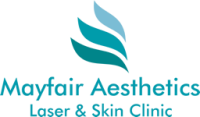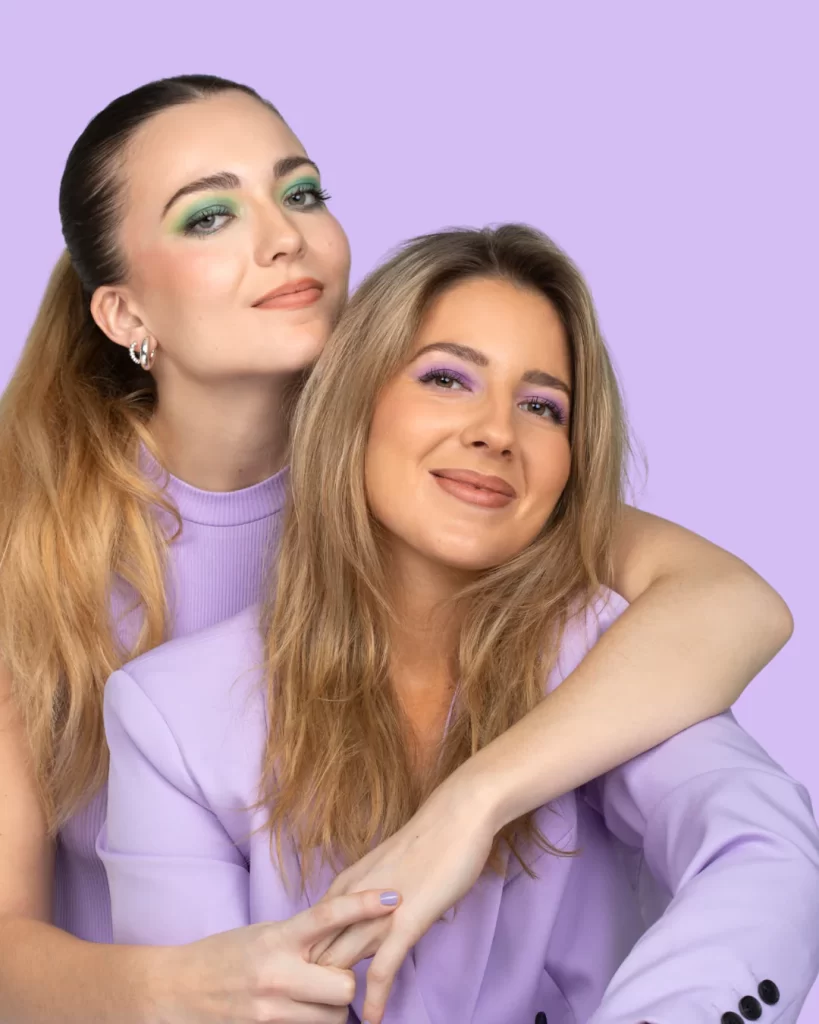We sat down recently with the founders of Oyo Skincare, Swiss sisters Lisa and Léonie Gisinto to talk about a problem many of our clients at Mayfair Aesthetics face – ingrown hairs.
1. What causes ingrown hairs? If ingrown hairs are a reoccurring issue for someone, does it reoccur in a specific area of their body or all over their body?
Ingrown hairs occur when hair curls back or grows sideways into the skin instead of growing outward. This happen a lot in areas where hair is frequently removed – especially shaved – or blocked by dead skin cells.
If someone is prone to getting ingrown hairs, it is possible for them to recur in a specific area of their body, such as the beard area for men or the bikini area for women, or other areas where hair is frequently removed (like armpits and legs).
The bikini area is a common area for ingrown hairs because the hair in this region is usually coarse and curly, and the skin is sensitive. Shaving or waxing can cause the hair to grow back at an angle, making it more likely to become trapped under the skin.
Additionally, the friction from clothing, sweat, and other moisture in this area can contribute to the development of ingrown hairs.
2. Can you prevent ingrown hairs and if so, how can they be prevented? Are there any lifestyle or hygienic changes someone can make to help reduce the number of occurrences?
Yes, ingrown hairs can be prevented with proper grooming and skincare techniques. There are several steps that someone can take to help reduce the likelihood of ingrown hairs occurring.
First, it is important to properly prepare the skin before shaving or waxing. This can be done by gently exfoliating the area to remove any dead skin cells that could clog the hair follicles. Using a gentle exfoliating scrub can help achieve this.
Second, it is important to use proper shaving or waxing techniques. This includes using a sharp (and clean!) razor or clean wax strip, shaving in the direction of hair growth, and avoiding pulling the skin too tight. After shaving or waxing, it is also important to use a soothing product to calm the skin and prevent inflammation.
Third, maintaining a consistent skincare routine is key to maintain a silky smooth skin and prevent ingrown hairs. Oyo Skincare offers a natural 3-step skincare routine specifically designed to prevent ingrown hairs and irritations in the bikini area.
This 3-Step routine includes a whipped cleansing butter (Keep It Clean), a gentle scrub (Ingrowns Out), and a moisturising oil (The Final Touch). This range is suitable for sensitive skin and contains 97% of natural ingredients.
Additionally, making lifestyle changes such as wearing loose-fitting clothing and avoiding excessive sweating can also help reduce the occurrence of ingrown hairs.
By implementing these preventative measures and following a consistent skincare routine like Oyo Skincare’s 3-step routine, ingrown hairs can be significantly reduced.
3. Does someone’s genetics play a major role in having ingrown hairs? If so, what kinds of treatments are effective for someone with frequent ingrown hairs?
Genetics can play a role in someone’s susceptibility to ingrown hairs, particularly in terms of hair type and skin sensitivity. People with naturally curly or coarse hair are more likely to experience ingrown hairs, as are those with sensitive skin.
However, while genetics can contribute to the likelihood of ingrown hairs, it is not the only factor and there are still effective treatments available for those who experience frequent ingrown hairs. Using a consistent skincare routine is a key factor that can considerably reduce ingrown hairs.
Wearing loose-fitting clothing and avoiding excessive sweating can also help reduce the occurrence of ingrown hairs. For more severe cases, a doctor may recommend laser hair removal or prescription-strength topical treatments such as corticosteroids or antibiotics to reduce inflammation and prevent infection.
4. What treatments are most common for ingrown hairs? Are there any ingredients, techniques, or products/brands you would recommend?
– Exfoliating
– Laser hair removal
For sensitive areas like the bikini line I recommend using products that are natural and gentle (yet incredibly effective!), like the 3-Step Skincare routine from OYO Skincare.
Laser hair removal will drastically reduce the number and frequency of ingrown hairs. For those clients that are really suffering, skincare and laser hair removal really can offer a solution.
5. If conventional treatments aren’t effective for someone and an ingrown hair won’t go away, what should they do? At what point should they discontinue at-home treatments and consider meeting with a dermatologist?
If the ingrown hair has been present for an extended period of time, and at-home treatments are not improving the situation, it may be time to consider seeking professional help. A dermatologist can help to assess the severity of the ingrown hair and recommend a more advanced treatment plan.
They can also determine if there are any underlying skin conditions or infections that could be contributing to the problem.
It is also important to discontinue at-home treatments if they seem to be aggravating the ingrown hair or causing other skin problems.
Over-exfoliating or using harsh products can cause further irritation, making the situation worse. In such cases, it is best to seek professional advice before trying new treatments or products.
6. Are there any at-home treatments or ingredients on the market that you would not recommend or encourage someone to avoid?
– Lemon juice: Some people may recommend using lemon juice as a natural exfoliant to prevent ingrown hairs, but it can be too acidic for some skin types and cause further irritation or sensitivity.
– Essential oils: Some essential oils such as tea tree oil or lavender oil can be helpful in preventing ingrown hairs, but they can also cause irritation or allergic reactions in some people. It is best to dilute essential oils and patch test before using them on a larger area of the skin.
– Harsh physical exfoliants: Using rough scrubs or brushes can cause micro-tears in the skin, leading to inflammation and further irritation. It is best to opt for gentler exfoliants
7. Finally, is there advice or information that I haven’t asked about that you think readers would benefit from learning about ingrown hairs and treatments?
Stop wearing synthetic underwear and replacing it with 100% cotton panties has helped me a lot so… Here’s another tip!
Check out the Oyo range by clicking here.



